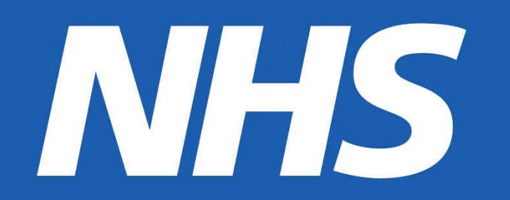The Health and Social Care Committee has urged the government to ‘swiftly’ reform the NHS Pension Scheme, after branding pension tax rules that are exacerbating pressures on the NHS workforce a “national scandal”.
In its report, the committee concluded that the NHS and the social care sector are facing “the greatest workforce crisis in their history”, highlighting particular concerns over the impact of pension tax rules on retention rates.
Indeed, the committee confirmed that it had heard “clear evidence” of senior medical staff both reducing their NHS hours and retiring earlier than they would otherwise because of concerns about pensions.
It also noted that whilst those in government had suggested that changes to the taper rate had solved the issue, this is “evidently not the case”, with sources warning the committee that the NHS is “haemorrhaging senior staff” over pension concerns.
More broadly, the committee suggested that there is a misconception that the issue impacts only the highest earners in the NHS, explaining that the pensions issue can be felt by any staff who “retire and return”, including nurses, many of whom are potentially unable to work the shifts that they want to, and thus ease pressure on the NHS to the extent that they otherwise could.
However, it pointed out that emergency measures were introduced during the pandemic to make it easier for some NHS medical staff to work for longer or return to work without disadvantaging their pension, with these measures recently extended until October 2022.
The committee also highlighted the fact that these changes were necessary at all as further suggestion that the taper was ineffectual in remedying the problem as decisively as thought.
The report stated: "It is a national scandal that senior medical staff are being forced to reduce their working contribution to the NHS or to leave it entirely because of NHS pension arrangements.
“Clearly, the government’s changes to tax regulations have not gone far enough to remedy this crisis.
"With mounting waiting lists and ever-increasing demands, the NHS cannot afford to lose staff who are willing and able to work, and urgent action is needed to reform NHS pensions and prevent the haemorrhage of senior staff.”
In light of this, the committee urged the government to “swiftly” reform the NHS pension scheme to prevent senior staff from reducing their hours and retiring early from the NHS.
It also suggested that NHS England should develop a national NHS “retire and return” policy to replace ad hoc local schemes, suggesting that, in the interim, the government could instruct NHS England to require NHS Trusts to follow pension recycling guidance it has already issued.
Commenting in response, a Department of Health and Social Care spokesperson said:
“The NHS Pension Scheme is one of the best available, providing generous retirement benefits for hardworking staff after a lifetime of service looking after our nation’s health, and the majority of NHS staff are able to build their pension tax-free.
“A small number of senior clinicians on the highest wages will exceed their allowances for tax-free pension saving, as is the case in other industries, and we continue to monitor retirement patterns and hours worked by staff.”
Following the report, industry experts have also outlined further suggestions to help address NHS workforce concerns, with AJ Bell head of retirement policy, Tom Selby, suggesting that it would make "far more sense" to scrap the annual allowance taper altogether.
He stated: “The UK’s pension tax system has become a quagmire of complexity, leaving savers befuddled as to what they can contribute each year and creating hugely damaging unintended consequences for the NHS.
“It is, frankly, absolutely ludicrous that pension tax rules are exacerbating the challenges facing a health system already creaking under the pressure of Covid-related backlogs.
“When pensions are increasing the risk of people not receiving the treatment they need something simply has to change.
“The select committee has urged the government to look at solutions that specifically address problems in the NHS pension scheme. However, it would make far more sense to scrap the annual allowance taper altogether.
“This would, at a stroke, remove any uncertainty facing senior doctors about the impact working extra hours would have on their pension arrangements.
“It would also make the pension tax system simpler to navigate for all, which has to be a good thing as various government initiatives aim to drive greater levels of engagement among savers.”
Latest News
-
Govt urged to prioritise pension policy stability in Spring Statement
-
Just Group underlying operating profit falls by 39%
-
Employers warned modest pension defaults risk worsening adequacy gap
-
Aegon updates modelling tool to help members benchmark retirement needs
-
News in brief - 27 February 2026
-
PPF levy to remain at zero for 2026/27
Private markets – a growing presence within UK DC
Laura Blows discusses the role of private market investment within DC schemes with Aviva Director of Investments, Maiyuresh Rajah
The DB pension landscape
Pensions Age speaks to BlackRock managing director and head of its DB relationship management team, Andrew Reid, about the DB pensions landscape
Podcast: From pension pot to flexible income for life

Podcast: Who matters most in pensions?

In the latest Pensions Age podcast, Francesca Fabrizi speaks to Capita Pension Solutions global practice leader & chief revenue officer, Stuart Heatley, about who matters most in pensions and how to best meet their needs
© 2019 Perspective Publishing Privacy & Cookies










Recent Stories